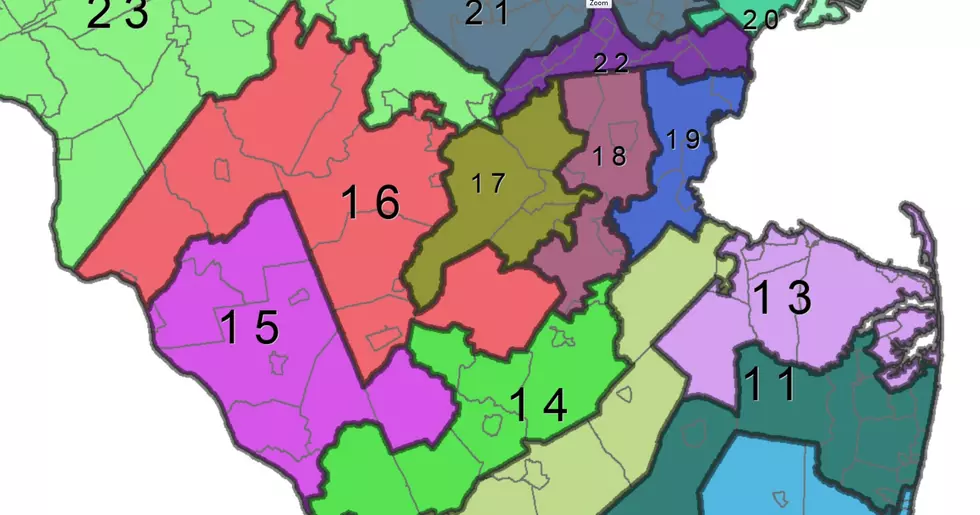
As COVID Delays Census, Lawmakers Seek to Extend Outdated Map
New Jersey’s population has changed significantly since 2010, but a delay in the census has state lawmakers pushing to run one more election on the decade-old legislative map.
COVID-19 will delay the completion of the census by at least four months, blowing up the schedule for adjusting district boundaries for 2021 elections. Democrats plan to ask voters to amend the constitution to delay redistricting until the 2023 cycle, despite New Jersey’s rapid diversification and changing growth patterns.
A public hearing on the proposal is being held Monday, and the Legislature could vote as soon as next week to put the question on the November ballot.
Assemblyman John McKeon, D-Essex, said the best-case scenario is that New Jersey receives census numbers June 15, as much as four months later than usual. The process from there would mean a primary in September or October 2021.
“Unfortunately, this is just one other thing that’s a fallout as to life that’s no longer usual based solely upon COVID,” McKeon said.
Henal Patel, director of the Democracy and Justice Program at the New Jersey Institute for Social Justice, said the outdated map dilutes the political power of minority populations, which have grown and now account for 45% of the state’s residents.
“Today’s bill is not in the best interest of the people of New Jersey generally and its people of color in particular,” Patel said.
David Pringle of Clean Water Action agrees the delay at the Census Bureau in completing the count and processing results means a new map based on the 2020 census can’t be in place for next year’s elections but says “there’s zero reason” to rely on the old map through 2023.
“This map is based on 10-year-old data. It’s nobody’s fault, but it’s no longer accurate. And folks are not fairly represented because of natural geographic changes,” Pringle said. “Some districts have too many people. Some districts have too few. Minority populations have changed and increased dramatically, and it hasn’t been equal across 40 districts.”
Story continues below interactive graphic.
Districts must have roughly the same population at the time a map is made, give or take 5%. Census Bureau estimates show two at this point are clearly too small: the 2nd District in Atlantic County and the 24th District in Sussex and Warren counties. Two are clearly too large: the 30th District anchored by Lakewood and the 32nd by the Hudson River waterfront.
Another seven districts are pushing against those limits and could be invalid, depending on the largest deviation on the other end of the spectrum. The 1st, 15th, 23rd and 25th districts may be too small. The 9th, 20th and 31st districts may be too large.
Population estimates show there’s now a 15% range between the size of the largest and smallest districts. Amy Torres of the Hudson County Progressive Alliance said American Community Survey data and other sources could show a map extension violates the ‘one-person, one-vote’ principle; Patel said it could violate Section 2 of the Voting Rights Act.
“Most courts would probably say that due to the extenuating circumstances that they would allow an extension of redistricting but may not allow a postponement of those new districts to 2023, which could trigger a series of special elections … which would come at great cost to the taxpayer at a time when the state is facing a mounting budget shortfall,” Torres said.
Advocates for the two-year delay say they want to avoid a 2022 state legislative election because the framers of the state’s 1947 constitution specifically provided for odd-year elections to keep state politics separate from congressional elections.
But a two-year delay of the new boundaries to 2023 would “likely create representational harm for Asian and Latino communities” that have increased by 20% since 2010, said Aaron Barden, legal and policy analyst for the Princeton Gerrymandering Project.
“A compressed election schedule in 2021 would allow for elections under new lines that year, rather than waiting until 2023, recognizing that this is not ideal, but it would lessen the harm to communities of color for two years,” Barden said.
Assemblyman Raj Mukherji, D-Hudson, called the two-year holdover of the current map “the least-bad solution.”
“It’s not ideal, but nothing in 2020 seems to be,” Mukherji said.

READ MORE: Tips for reducing stress and anxiety
More From WPG Talk Radio 95.5 FM










